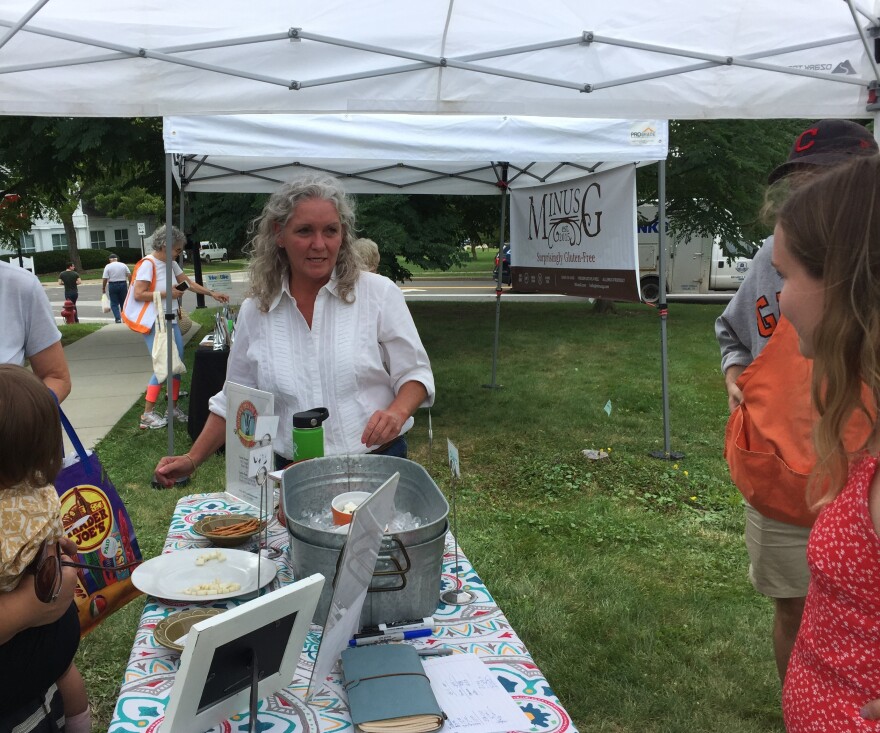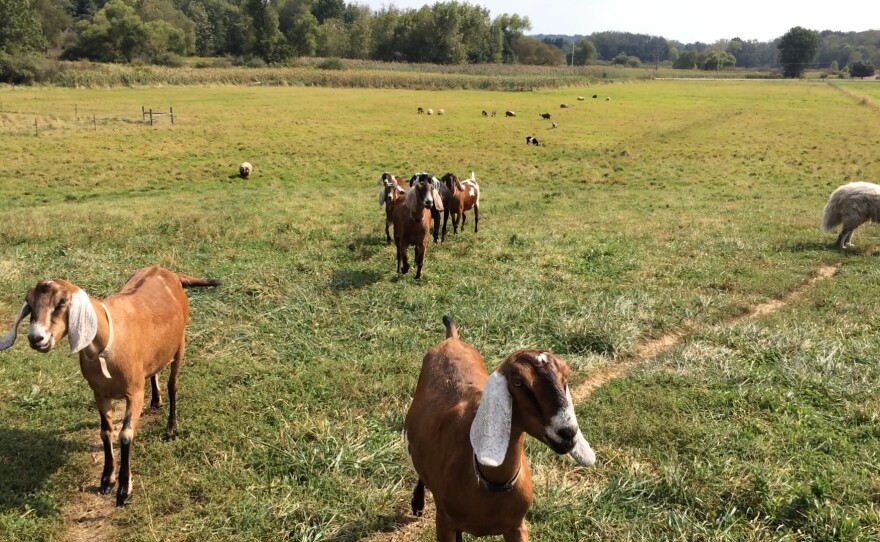Raw, unpasteurized goat milk can be bought in Ohio for use as pet food. But between the teat and the street, farmers have to do a lot of work to make the milk safe for human consumption.
In this installment of WKSU’s “OH Really?,” we try to help a listener who wants to “drink local” and buy fresh, raw goat milk right from the farm.
Goats are everywhere at Ferrum Moraine Farm in Kent. Owner Gwenn Volkert has used raw goat milk to make goat cheese and even goat soap. But she’s never sold raw milk.
“I have drank raw milk myself. I have a farm. We know how to take care of our animals and how to test for different things. But I would be very uncomfortable risking somebody else to offer my milk raw.”

If she ever does, she’ll have at least one customer: Cathy Yakubik from Hartville.
“I used to help [raise] puppies. And we could get goat milk, but you cannot buy goat milk for human consumption. So why is it that I can’t go to my local farmer and buy goat milk?”
Cathy is specifically interested in buying raw, unpasteurized goat milk -- but that’s been illegal in Ohio since the mid-1990s, when the state clarified and streamlined dairy laws to ensure the safety of the milk supply.
“My Mom and I live on a small hobby farm.”
Until recently, Cathy had chickens and grew Swiss Chard. So why not just keep goats herself?
“No, I’m downsizing. I can’t do it anymore. I have too many health problems.”
Yakubik believes it’s beneficial to eat and drink fresh foods – including goat milk. There’s science to back up her beliefs. Iowa State Professor Stephanie Clark says there is evidence that goat milk has more nutrients, “including but not limited to complete protein, calcium, phosphorus, potassium, niacin, Vitamin B12, etc.”
Clark is a professor of Food Science and Nutrition and has researched a century’s worth of studies on dairy goats and the advantages of their milk.
“[There’s] more fat and protein on average per 100 grams than cow milk. And cow milk has more water, so it’s a little bit more dilute than goat milk.”
Clark says that’s why goat milk – when it’s pasteurized -- is so healthy for humans. And pasteurization does not deactivate vitamins, minerals and probiotics – a claim she says has spread online.
“What changes in pasteurization is that you kill the potentially hazardous microorganisms that are in there. That’s what changes. The sad thing about probiotic bacteria is, we need millions of them to benefit from them. But the sadder thing is, we only need 10-100 of some of the dangerous bacteria to get hurt by them.”
And Clark says there’s always the risk -- even with milk for pets -- that an affectionate puppy will lick its

owner’s face and spread an illness. There’s no way to buy raw goat milk in Ohio, “Unless you have something called a herd-share agreement,” explains Abbe Turner, owner of Lucky Penny Farm, which produces goat milk and goat cheese.
“A contract between an individual and a farmer that the individual is part-owner of a particular animal – whether it be a cow, goat [or] sheep – or part-owner of a herd. And because it’s your animal – you own a piece of it – you have the right to acquire the raw milk.”
Our question-asker, Cathy Yakubik, has not looked into a herd share. Her hope is that the law will be changed. Bills were introduced in 2006 and 2007 that never made it out of committee. So we called Yakubik’s current state representative -- Reggie Stoltzfus -- who also happens to be on the House Agriculture and Rural Development Committee. He sent a brief statement saying there are no plans to change Ohio’s goat milk laws in the near future, which is disappointing to Cathy Yakubik.
“I don’t understand the fear of the goat milk. There’s a lot of countries where people have access to goats, but not other animals. And they don’t seem to be dying in droves. And they’re drinking fresh, unpasteurized milk.”
“OH Really?” is our initiative to make you part of the reporting process. Ask your question now.
_










